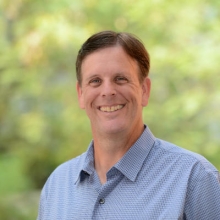CBE Seminar: Improving Secondary Organic Aerosol Prediction through Environmental Chamber Experiments

Professor and Chair
Department of Chemical and Environmental Engineering
University of California, Riverside
Abstract: Secondary organic aerosol (SOA) is a major contributor to fine-particle air pollution in Southern California along with many regions across the globe. SOA is formed via atmospheric reaction of volatile organic compounds leading to oxidation products of lower vapor pressure that can enter the aerosol phase. Traditionally, SOA in areas such as the Southern California Air Basin is attributed to anthropogenic precursors such as unburnt or partially combusted fuels. This presentation will explore an emerging class of molecules named volatile chemical products (VCPs) that were recently identified as major precursors to ozone and secondary organic aerosol formation within the Southern California Air Basin. Many VCPs are currently exempt from air quality emissions regulations on the basis of their vapor pressure. In this talk, we will explore the ability of VCPs to mobilize into the atmosphere as individual components as well as mobilize from a consumer product. We will investigate the SOA formation and ozone formation potential within the UC Riverside large-scale dual 90 m3 indoor environmental FEP Teflon chambers. The work will show some of the measurement challenges encountered and overcome for these novel SOA precursors, as well as lessons learned about differences between individual VCP behavior and that of a consumer product.
Bio: David Cocker is professor and chair of the Department of Chemical and Environmental Engineering at UC Riverside. He completed his doctorate in environmental engineering science from the California Institute of Technology in 2001. He has published more than 120 peer-reviewed journal articles in the areas of secondary organic aerosol formation, detailed primary source emissions characterization, air quality systems and health impacts of fine particulate matter.
Host: Vasan Venugopalan
